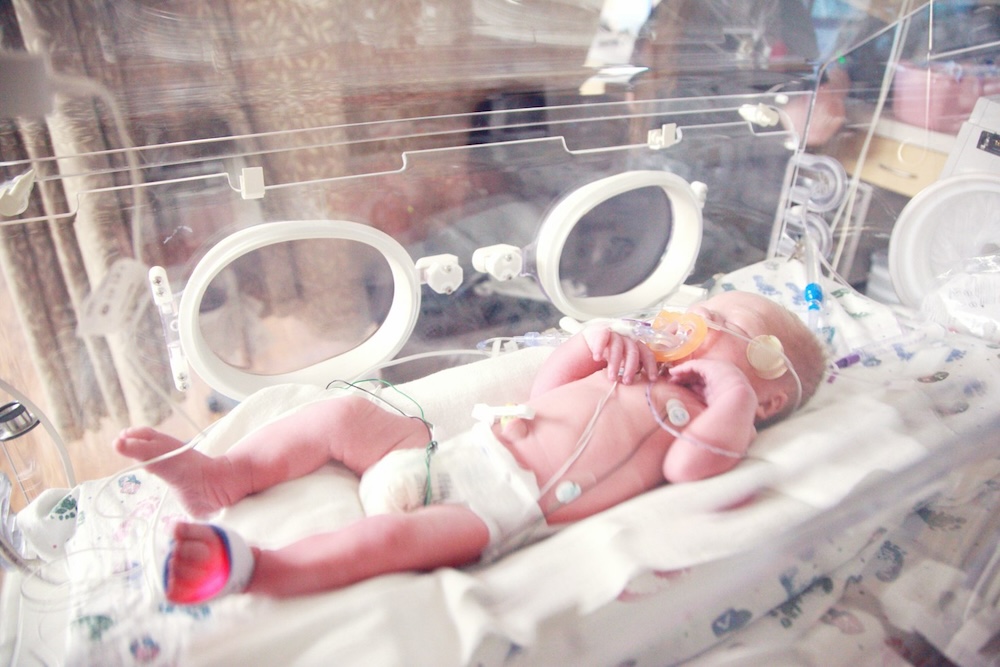Sometimes referred to as ‘preemies,’ premature babies are those born before the 37th week of gestation. Having a preemie can be an overwhelming experience for the mother, especially when it comes to the baby’s health and safety.
Any newborn needs extra care and attention. However, preemies have special needs to care for since they must catch up to the growth of regular newborns. Their little bodies are underdeveloped and unequipped to deal with life in the outside world.
Thankfully, medical science has come far enough to enable a preemie to survive the first few weeks or months of their life before they’re strong enough to go home. According to the World Health Organization (WHO), 1 in 10 babies are born prematurely worldwide.
Have you also given birth to a preemie who is now ready to come home from the NICU? If yes, then it is natural to feel nervous and unprepared. Your neonatal care team will just be a call away in case of emergencies. As for your baby’s daily care needs, this article can help.
We will discuss some important things ‘preemie’ parents should keep in mind.
How Soon Should You See the Doctor?
Once your baby is back home, it will require regular pediatrician visits as routine checks. But how soon should that happen? The first check-up (after getting back home) should ideally take place within the first week itself.
In case your baby needs any tests like blood, vision, hearing, etc., follow the timeline given by the care team. If home nursing is required, schedule those as well within the first week. Many preemies may have to see specialists like neurologists, physical therapists, etc., for several years to ensure their speech, vision, hearing, etc., are measured up.
What to Know About Feeding the Baby?
At the time of discharge, your baby’s neonatal care team must have handed in a custom feeding plan. Following that plan will ensure your child gets the nourishment they need. As a preemie, they will likely need extra calories for healthy growth.
This is where the importance of the nutritional choice comes in. The best nutrition for your baby is breast milk. Even the WHO recommends mothers to feed their newborns breastmilk for at least the first six months of their life. However, you can continue to do so for a couple of years.
If you cannot breastfeed for some reason, the most common alternative is baby formula. Practice caution as you make this choice because formula feeding may threaten your baby’s life. In simple and clear terms, infant formula has gained a bad reputation for causing necrotizing enterocolitis (NEC) among premature newborns.
It is a serious intestinal condition in which bacteria invade the inner lining, causing inflammation. The baby may develop a severe infection, or worse yet, die. Parents of affected babies have filed an NEC lawsuit against formula manufacturers like Mead Johnson and Abbott Laboratories.
Their babies (most of them premature or with low birth weight) displayed symptoms like a swollen belly, constipation/diarrhea, belly discoloration, green vomit, sleep apnea, and unstable body temperature.
According to TorHoerman Law, plaintiffs have alleged that the formula manufacturers used deceptive marketing practices on unsuspecting/vulnerable mothers.
In light of this growing concern, a safer alternative for your preemie would be milk from a human milk bank. All you need to ensure is that the bank collects, stores, and distributes the milk hygienically.
How to Protect Your Baby from Infections?
Your premature baby’s immune system is still in its developmental stages. This makes them highly vulnerable to developing infections. To protect them, you can take the following steps –
- Limit outings – outside trips should be limited to medical visits for the first few months (especially during winter). Even during doctor visits, schedule an appointment first thing in the morning to ensure the clinic is less crowded.
- Avoid having visitors over – the more visitors come inside your home, the higher the risk of germs. If anybody is unwell, they must not be allowed near your baby. Moreover, encourage others to look at the baby but not touch it.
- Always ensure your hands are clean – Anybody who touches the baby (you or other family members) must thoroughly wash their hands first. This will prevent the transfer of germs.
- Keep your baby’s environment clean – germs can live on top of surfaces for at least 48 hours. This is why it is important to regularly clean countertops, toys, and high chairs. Also, keep the antibacterial cleaners in a place that is far out of reach.
- Use disposable tissues – throwing away used tissues can help reduce the risk of infection. Use a new disposable wipe every time you need to wipe your baby’s eyes, nose, or face. Anybody around the baby should also carry one in case of sudden cough or sneezes.
When Should You Be Concerned about Your Baby’s Breathing?
It is commonplace for premature newborns to have periods of apnea – pauses in breathing. By the time your baby is allowed to go home, this problem should have stopped. This is because preemies are not usually discharged if their apnea causes a change in color or a slow heart rate.
However, doctors may allow some preemie parents to take their newborn home with an apnea monitor. If your baby needs one, make sure whoever is alone at home with them is trained and knows how to perform infant CPR.
In rare cases, an infant may suffer from long-lasting lung conditions like bronchopulmonary dysplasia or BPD. This involves scarring and irritation of the lung tissues.
In such cases, the infant will need regular medication and oxygen. If your baby is also diagnosed with BPD, arrange for oxygen equipment and monitoring before discharge. Your care team is always there for you. They will be able to answer any queries regarding the oxygen equipment, medication, etc.
Amidst all this, there will be times when you feel overwhelmed as a preemie parent. This is especially true of mothers recovering from childbirth. They may face hormonal shifts that impact their mood, mental health, etc.
To cope with these changes, do not hesitate to accept help offers from friends and family. Get ample rest, exercise moderately, and eat healthy. If it all seems too much, seek professional help until you fully recover.






































